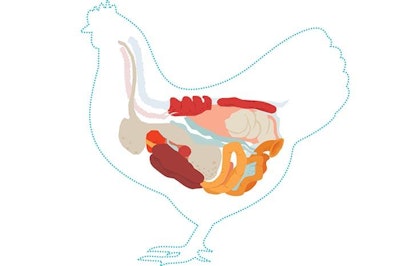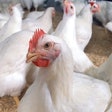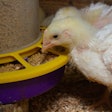
The poultry industry faces a lot of challenges, coming in part from pushing production to its limits, but this approach is not wrong. Rather, it is the way in which the sector needs to continue moving, and solutions are already being found.
This is what delegates heard at the sixth International Conference on Poultry Intestinal Health (IHSIG), held in Rome in early April.
New technologies and their application in poultry production are allowing ever greater understanding of intestinal health, and topics addressed at the event ranged from identifying biomarkers for intestinal health to steering gut immune responses and identifying ideal feed additives.
With eight keynote presentations, the event also afforded the opportunity for numerous shorter abstract presentations, and various areas of gut health were examined, with the One Health concept central in discussions.
Symbiosis disruption
Looking to developments in human research, keynote speaker Joel Dore of French research institute INRA, noted that there are 100 trillion bacteria in each human being, as well as phages, fungi and other organisms. We become “microbial” at birth, he continued, adding that the immune system recognizes the microbiota as “part of self.”
While science may have been successful in better controlling infectious conditions in the human population, there has been a rise in immune conditions, with 1 in 4 people now thought to be affected. These chronic conditions have been growing uncontrolled over the past 60 years, with human longevity starting to decline in developed countries.
Dore continued that there is a common thread in these conditions: a disruption in host-microbe symbiosis.
Much has changed in the way that we live over the past 50 years that has affected the microbiota. Take for example, birth. In some areas, caesarean sections now account for 9 out of 10 births, breaking microbe transmission from mother to child. Where diets are concerned, fiber consumption in Europe, for example, is much lower than it should be.
A poor microbiome will lead to poor metabolic and inflammatory traits. For example, responses to low-calorie diets in obese patients are poorer where the microbiome is less diverse. In cancer patients, there is longer progression-free survival in those patients with a high abundance of Faecalibacterium.
Dore noted that the intestinal microbiota, human or animal, should be regarded as a true organ that can be modulated for health, and with characteristics relevant to the development of sustainable production systems.
Start early
As in the human environment, change has occurred in the poultry industry. Genetics and speed of growth have changed and eggs, for example, are removed from their natural environment, noted Adrian L. Smith of Oxford University, who noted that it was perhaps little surprise that we have the problems that we have. Put simply, birds and the environment in which they are raised are tuned for production, not for gut health.
The microbiota needs to be considered early in a bird’s life, and the bird and its microbiota need to be considered as a holobiome, and not separately.
In young animals, the microbiota is changing rapidly. Change will start during the first days of life and continue for many weeks. With broilers, we are constantly dealing with a developing “immature” gut immune system and physiology. In contrast, older layer and breeder birds have reached a more stable physiological state.
The gut is the most complex immune organ, with various cell populations doing different things, and interacting with each other and with the gut itself.
As research continues, there is a growing understanding of which microbes are beneficial and which are harmful and why, and what may favor or inhibit their colonization, along with which are beneficial or harmful host responses, how host cells respond to bacterial molecules, and when a response may be good or problematic, facilitating modulation of the gut environment to improve health and performance.
IHSIG 2021
The sixth IHSIG attracted more than 750 attendees from 57 countries. The seventh IHSIG will be held in Cartagena, Colombia, in 2021.


















